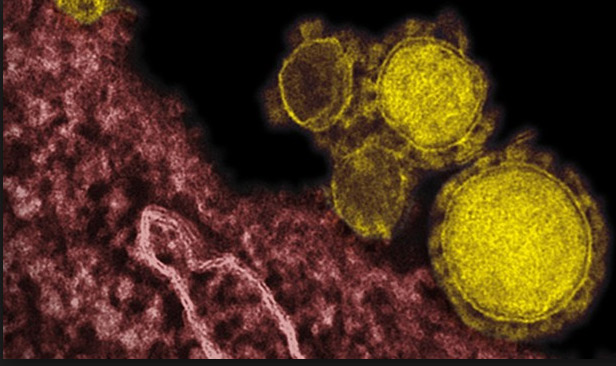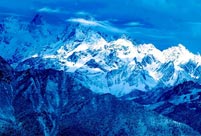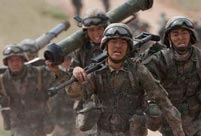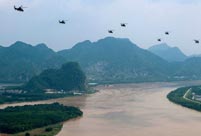

 |
San Francisco, June 11, (People's Daily Online)----A Silicon Valley company cautions his workers Thursday to keep away from South Korea due to the outbreak of Middle East Respiratory Syndrome (MERS) , a contagious respiratory virus that has killed 10 in the country .
Maxim, an analog chipmaker in Silicon Valley, California sent emails to all its employees that "As a precaution, Maxim is requiring employees to postpone or reschedule travel to South Korea until it is safe."
The company also states that if anyone who has visited South Korea within the past two weeks (work or vacation) and are exhibiting symptoms such as fever, cough, or shortness of breath, should gain clearance from a doctor before returning to work.
Jerry Cheng, an engineer with a healthcare company in Silicon Valley said although he had no feeling about the disease, he would never travel to South Korea before the warning is lifted.
South Korea reported a 10th death from the MERS virus on Thursday, although officials say they believe the disease may have peaked.
News report from AP said that the outbreak of Middle East respiratory syndrome has infected more than 120 people since the first case, a 68-year-old man who had traveled to the Middle East, was diagnosed on May 20. About 3,800 people remained isolated Thursday after possible contact with infected people, according to the ministry. More than 2,600 schools and kindergartens across South Korea were closed.
MERS was first identified in humans in 2012. Most of the global cases, which number 1,271 according to WHO data and at least 448 related deaths, have been in the Middle East. Some experts believe that the disease can spread in respiratory droplets, such as by coughing. But transmissions have mainly occurred through close contact, such as living with or caring for an infected person.
Leon, an American marketing person, told the reporter that the outbreak of MERS reminds him of the Ebola plague affecting multiple people last year in the United States. He said that " America may have more experience to respond quickly if the disease lands in the United States."
 Abandoned village swallowed by nature
Abandoned village swallowed by nature Graduation: the time to show beauty in strength
Graduation: the time to show beauty in strength School life of students in a military college
School life of students in a military college Top 16 Chinese cities with the best air quality in 2014
Top 16 Chinese cities with the best air quality in 2014 Mysterious “sky road” in Mount Dawagengzha
Mysterious “sky road” in Mount Dawagengzha Students with Weifang Medical University take graduation photos
Students with Weifang Medical University take graduation photos PLA soldiers conduct 10-kilometer long range raid
PLA soldiers conduct 10-kilometer long range raid Stars who aced national exams
Stars who aced national exams
 PLA helicopters travel 2,000 kilometers in maneuver drill
PLA helicopters travel 2,000 kilometers in maneuver drill Tarnished golden years
Tarnished golden years Ai’s latest exhibition may herald new start
Ai’s latest exhibition may herald new start Pig eyes cure blindness
Pig eyes cure blindness Little engines that still can: China's steam trains
Little engines that still can: China's steam trainsDay|Week